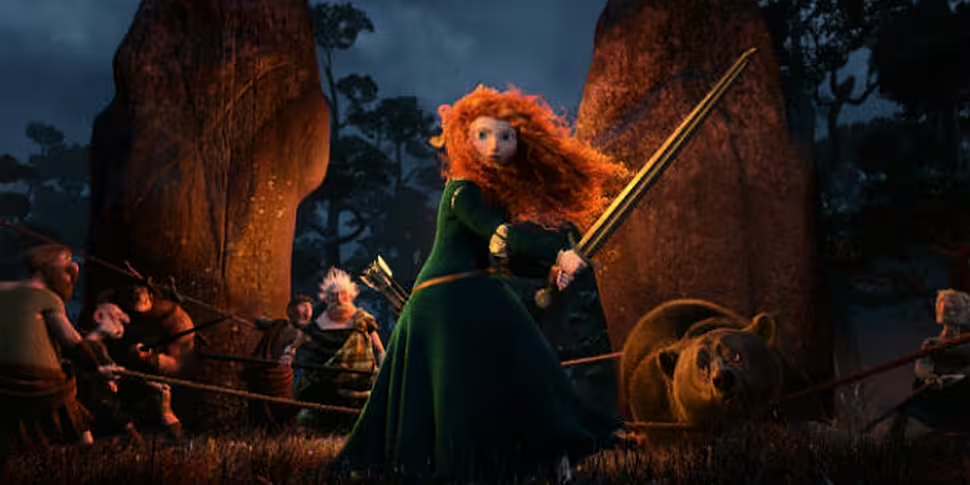Writer Jon Negroni has attracted attention recently for his surprisingly compelling, if completely bizarre, theory that all Pixar films take place in one single, consistent universe. It’s a proposal full of magic, time-travelling witches, evolution and apocalyptic happenings that crafts a millennia-long timeline of events that begins with Brave and ends, unusually, with A Bugs Life.
The theory heavily based around all those self-referential Easter eggs Pixar are known for planting in all their productions. There’s always, for example, a subtle reference in their films to whatever their next release is (Monsters University, for example, contains a nod or two to next year’s The Good Dinosaur). Best to let the man himself explain the details.
Negroni himself admits “half of me believes they totally did this from the get-go since they are more than capable of doing something so amazing, while the other half of me realizes that this is my love for Pixar movies manifesting itself in over-the-top conspiracy theories”. But he’s not the only one to have read some surprising things into seemingly straightforward films...
The Shining
We could fill up this article and several more discussing the whole range of interpretations of The Shining - but, luckily, there’s been a whole film made about them in the form of last year’s documentary Room 237.
It makes sense that fans would obsess over the work of an obsessive director like Stanley Kubrick - well known for agonising over the tiniest details - but The Shining theories are particularly ‘out there’. They include the film being an abstract allegory for the Holocaust or the plight of Native Americans. The best by far, though, suggests that The Shining is Kubrick’s cryptic ‘confession’ of his involvement in the alleged faking of the first moon landing. As wacky and over-analytical as much of that theory is, even the most sceptical of sceptics might be momentarily persuaded when Jack’s young son is shown wearing an Apollo 11 jumper.
My Neighbour Totoro
In this writer’s opinion, Hayao Miyazaki’s My Neighbour Totoro is perhaps the greatest animated film ever made - a warm-hearted and absolutely charming ode to childhood imagination and innocence. Best not to think about the ‘Totoro as God of Death’ theory too much, then, which recasts the delightful eponymous furball as a Grim Reaper that has come to claim the souls of our (allegedly recently deceased) young protagonists. There is a darker undercurrent to the film as is, but that theory is an absolute buzzkill for a film where it’s near impossible to walk away without a cheerful spring in your step.
Ferris Bueller’s Day Off
Another classic fan theory reinterprets Ferris Bueller’s Day Off as Cameron Frye’s Day Off. Yes, in this much subscribed to reading, the protagonist to John Hughes’ classic comedy is not charismatic Ferris (Matthew Broderick), but rather his long-suffering best friend Cameron (Alan Ruck). It goes further still, suggesting Ferris and his girlfriend Sloane (Mia Sara) are actually just figments of Cameron’s imagination - Ferris a psychological manifestation of all Cameron wants to be, and the day off eventually forcing Cameron to take command of his own life. Or, in a more sobering interpretation, does he kill himself?
Of course, the somewhat bothersome fact that most of the film is focused solely on Ferris (and indeed his family) does mean this theory requires some serious suspension of disbelief. But hey, it’s a fun little interpretation of a fun little film.
James Bond
With Bond 24 just announced, and several different actors having portrayed the super agent over the decades (do we include David Niven?), it would seem like an exercise in futility to try and apply much internal consistency to the beloved franchise. That hasn’t stopped people from trying.
The great James Bond conspiracy theory states that James Bond is not just one person, but rather an identity that M16’s best agents are forced to adopt. It’s not simply a name they earn, but also a personality and lifestyle, with some able to embrace the Bond persona better than others (we’re looking at you, George Lazenby). It also, to some degree, accounts for how some characters like M remain consistent even as Bond himself changes. The result is the legend of James Bond - a mysterious, immortal agent that has been created to strike fear into the hearts of Britain’s enemies - James Bond will return.
It’s ridiculous, of course, but just goes to show how passionate fans will always try to uncover unexpected depths in their favourite films, whether the creators intended it or not.









